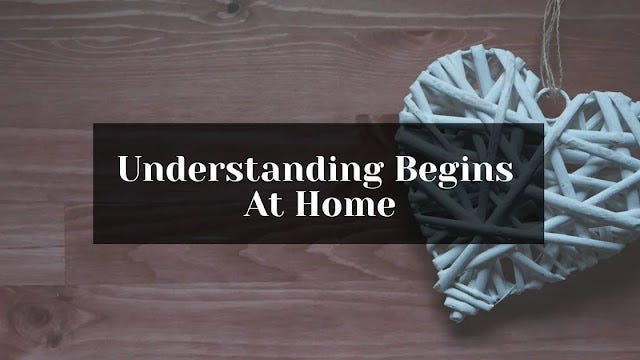Understanding Begins At Home
Miguel was about 10 months old when we realized that he might be on the autism spectrum. We observed that he had many repetitive movements and quirks like flapping of the hands, walking on tiptoe, and fixation for certain things like toy car wheels and rotating objects. Like any other parents, we sought answers in Google and all information that we saw on the Internet pointed to autism.
Understanding Begins At Home
Even without an official diagnosis, we were naturally sad, a little worried, and had an endless stream of questions flowing inside our heads.
We took a deep breath and thought of options just in case our fear becomes a reality. When the initial panic died down, we sought answers in Facebook groups, forums, and even on YouTube.
When we finally went to the developmental pediatrician for a consultation, everything that we heard from the doctor was a mere validation of our initial suspicion. Well technically, our son hasn’t been given an official autism diagnosis yet; he is still classified under Global Developmental Delay.
Just the same, we were told to treat it as if he already had an autism diagnosis and implement a more aggressive approach that’s why we enrolled him in occupational therapy early on. If not for the pandemic, we would’ve been in continuous occupational therapy for two years now but that’s another story.
Anyway, I do wonder at times how it is for other special needs dads. I know most moms are more resilient when it comes to the topic of childcare. Not to stereotype them or put labels on moms, but I guess most people would agree with me that mothers love unconditionally and without reservations. Yes, dads can be all of that, too, but moms are made or shaped by nature to be caring and nurturing.
In the school where Miguel has his weekly therapy, moms (and grandmas) outnumber dads in the waiting area. We were usually three dads in the waiting area. During our last session, I saw another dad so we were four.
Having said that, I do wonder how other dads feel about their child’s condition once they hear the diagnosis? I’m sure they feel the same way I did. It’s natural to be confused especially when you hear about something that you don’t understand.
I know a lot of modern dads would assess and analyze their course of action in a systematic manner. At the same time, the Philippines is a predominantly traditional society. When people perceive something beyond what they are used to, they treat it like something out of this world.
In an autism support Facebook group that I’m a part of, I saw a worried mom’s post regarding her fear for her autistic son. Since that particular mom knew that they would be asked to report back to the office soon, she feared that her stepfather might hurt her son while she was away.
That’s just one of the many sad stories that I get to read in those groups. It’s just discouraging at times that there is still a lack of understanding for autism and special needs in most Filipino homes. I guess we just need to continuously educate other people about autistic children.
I wonder how it is for other families? I understand that some families get overwhelmed with the physical, emotional, and financial demands of having a special needs child. A good support from the national government and even non-governmental organizations will go a long way in helping those who are not financially able.
At the very core of it, families should try their best to understand a special needs child in spite of the circumstances that they are in. After all, autism does not have a face; it’s broad, it’s diverse, and it manifests in different ways.
Special needs care can be hard and challenging but the solution begins with families exerting extra effort to understand their loved one who is beyond the typical.
What do you think? Please feel free to share your opinion about this topic in the comment section below.





